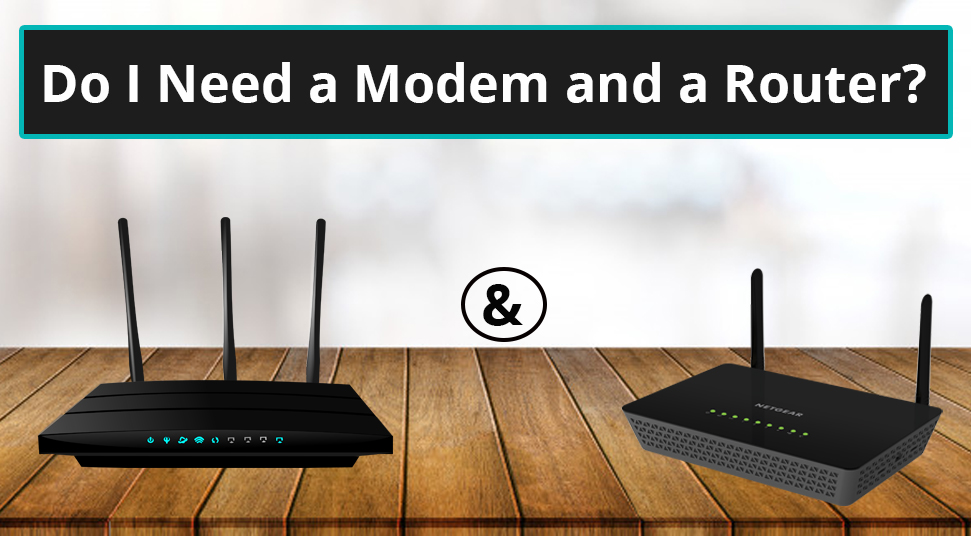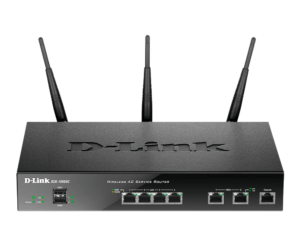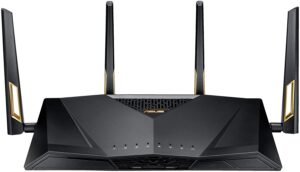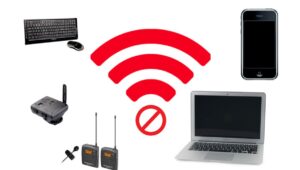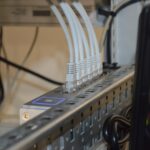A modem stays connected to the Internet Service Provider via a cable connection. In contrast, a router creates a local network among your devices and the connected modem.
So, do I need a modem and a router for optimum internet access? Yes, you will need a modem and router to access the internet on all your network-enabled devices.
If you are considering getting an uninterrupted internet connection for your home, you must learn about the difference between a modem and a router. Additionally, you should figure out how they work.
Let’s start with what a modem and a router are.
A Quick Overview of a Modem and a Router
The word ‘modem’ stands for ‘modulator-demodulator’. A modem is a device that brings internet access to your home from a reliable Internet Service Provider or ISP. Do I need a modem if I have a router?
Yes, you need a modem because this device translates the data from an ISP into a different format that your network devices use. Depending on the connection type, modems can be of the following 3 types:
- The first one is a dial-up modem that utilizes a phone line to connect to the ISP. However, dial-up modems are the oldest connection, and broadband connections have already replaced them.
- A Digital Subscriber Line or DSL modem is another type that uses the same phone line to connect to the ISP. On a contrary note, DSL modems can deliver much higher speeds than dial-up ones.
- On the other hand, a cable modem is currently the most used connection. It uses a cable TV line to stay connected to your ISP.
However, many modems are available with both modem and router capabilities. You can plug your device into a modem for seamless internet access. On a related note, installing a router in your home network will help you wirelessly connect your laptops, smartphones, smart TVs, and more devices to the internet connection.
Introduction to Routers
As you already know, a modem connects to your home. On the other hand, a router makes internet connection accessible to all your devices. In short, a router creates a LAN or Local Area Network. A router connects to a modem physically, and then you can connect your devices wirelessly to the router.
However, wired routers connect to a modem and other devices using cables. Wireless routers are the most popular because of their decluttered facility. Still, wired routers provide more security in terms of connectivity compared to wireless ones.
Routers help you manage the internet connection and connect all your network devices. For example, you can enhance the strength of your home network by enabling the integrated firewall system. In addition, you can hide your devices’ IP addresses from the public internet using a compatible router.
Moreover, routers make it easy to connect to a Virtual Private Network that offers extra privacy and security to your network. Furthermore, you can use parental controls with a router and restrict internet access for specific websites, devices, and more.
Differences between a Modem and a Router
So far, it’s clear that both modem and router are necessary pillars of your home network. Talking about the modem vs. router conflict, a modem connects your home to an ISP, while a router connects all your devices to the internet connection provided by your ISP.
In addition, a modem uses a Wide Area Network or WAN to connect your home network to the ISP. A router fabricates a Local Area Network and assigns local IP addresses to all connected devices. In contrast, a modem has a unique public IP address. However, a router can create a LAN without an internet connection.
Do You Need a Modem and a Router for an Active Internet Connection?
Yes, you can create a LAN with a router connecting all your devices. Thus, you can communicate with other devices from a single device without an internet connection if you haven’t connected a modem to the router. Therefore, you must get a modem and a router for a functioning internet connection at your home or office.
The modem sends and receives signals or data from the Internet Service Provider. On a related note, a router disburses the data or signal to the connected devices on the same network. Remember, your modem should use an Ethernet cable to connect to your router.
Otherwise, your router can’t connect to the internet without a modem. Thus, devices connected to the router won’t be able to access the internet. However, devices can communicate with each other through the established router connection.
No doubt, you will require a modem and a router separately to access the internet. In contrast, modem-router combos are becoming more and more popular nowadays. Such modem-router duos can execute both the roles and responsibilities of a modem and a router.
So, you can opt for a modem-router combo if you don’t like to buy 2 separate devices to set up your home network and access the internet. Moreover, a modem-router duo takes less space than 2 individual network devices.
A Router Setup Procedure without a Modem
Can you set up a router network across your home without a modem? Yes, you can, but your connected devices can’t access the internet. Still, they can communicate with each other due to the network created by the router. Here’s how you can set up a Wi-Fi router without a modem:
- Start by noticing the SSID or network name and your router’s default password from its packaging box or label. You can also find the same from the bottom side of the router.
- Now, plug your router into a power outlet and turn it on.
- After that, go to your computer and click the Wi-Fi symbol. Choose the SSID or network name of the router and submit the password.
- Next, connect all your devices to the Wi-Fi network. If you need to connect a printer to the network, you must use your computer as a mediator.
- Then, you can open a browser on your computer and enter your router’s default gateway IP address. Thus, you can access your router’s configurations.
- Once the login screen appears, input the default username and password typically found on the bottom of the router or the instruction manual.
- After you log into the web console, you can customize the Wi-Fi network according to your preferences.
Now, you can connect a modem to your router after contacting an ISP to obtain a smooth internet connection to your every device.
Should You Get a Separate Modem and Router or a Modem and Router Combo?
A separate modem and router connection offers more security. However, standalone devices can take up more space. So, you can get a modem-router combo if you want to save space. Additionally, modem-router combos are easier to install and set up. Indeed, they can offer flawless internet connection to multiple devices.
Hence, they are also perfect for gamers, streamers, and small businesses. However, you must know how to solve network train, which is common due to multiple devices. Whatever modem-router solution you choose, pay special attention to reliability, security, and internet speed.

